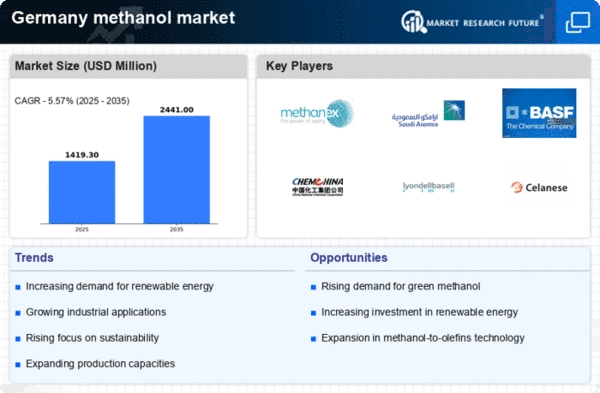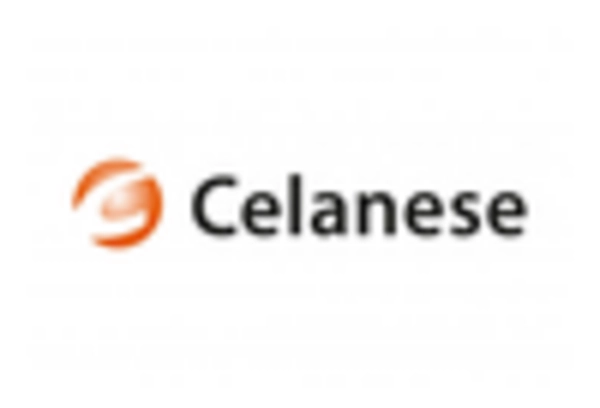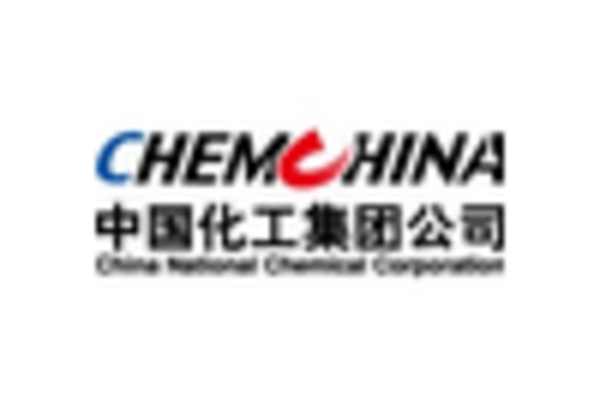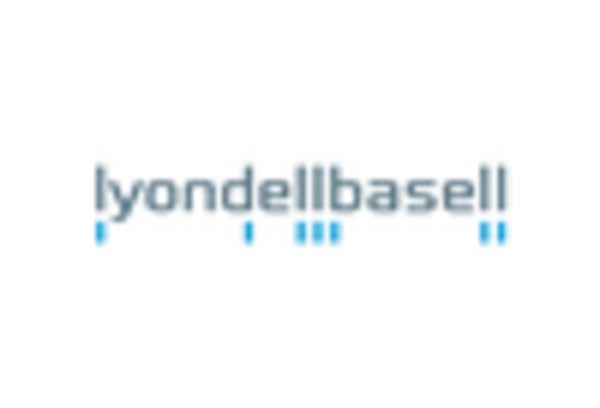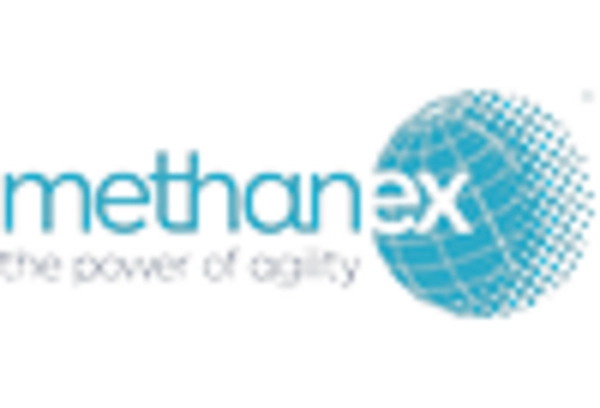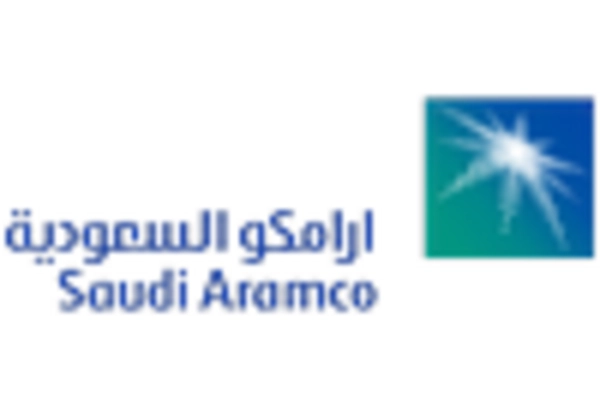The methanol market in Germany exhibits a competitive landscape characterized by a blend of established players and emerging innovators. Key growth drivers include the increasing demand for methanol as a clean fuel alternative and its applications in the production of chemicals and plastics. Major companies such as Methanex Corporation (CA), BASF SE (DE), and LyondellBasell Industries N.V. (NL) are strategically positioned to leverage these trends. Methanex Corporation (CA) focuses on expanding its production capacity and enhancing its supply chain efficiency, while BASF SE (DE) emphasizes innovation in sustainable methanol production processes. LyondellBasell Industries N.V. (NL) is actively pursuing partnerships to enhance its technological capabilities, thereby shaping a competitive environment that prioritizes sustainability and operational excellence.The business tactics employed by these companies include localizing manufacturing and optimizing supply chains to meet regional demands effectively. The market structure appears moderately fragmented, with a few dominant players exerting considerable influence. This fragmentation allows for a diverse range of strategies, as companies seek to differentiate themselves through innovation and operational efficiency.
In October Methanex Corporation (CA) announced the commissioning of a new methanol production facility in Germany, aimed at increasing its output by 1 million tonnes annually. This strategic move is likely to enhance Methanex's market share and solidify its position as a leading supplier in the region, responding to the growing demand for methanol in various applications.
In September BASF SE (DE) unveiled a new initiative focused on carbon capture technology to reduce emissions from its methanol production processes. This initiative not only aligns with global sustainability goals but also positions BASF as a pioneer in environmentally friendly methanol production, potentially attracting environmentally conscious customers and investors.
In August LyondellBasell Industries N.V. (NL) entered into a strategic partnership with a leading technology firm to develop advanced catalysts for methanol production. This collaboration is expected to enhance production efficiency and reduce costs, thereby providing LyondellBasell with a competitive edge in the market.
As of November current competitive trends in the methanol market are increasingly defined by digitalization, sustainability, and the integration of artificial intelligence in production processes. Strategic alliances among key players are shaping the landscape, fostering innovation and enhancing supply chain reliability. The shift from price-based competition to a focus on technological advancement and sustainable practices is evident, suggesting that future competitive differentiation will hinge on the ability to innovate and adapt to changing market dynamics.


